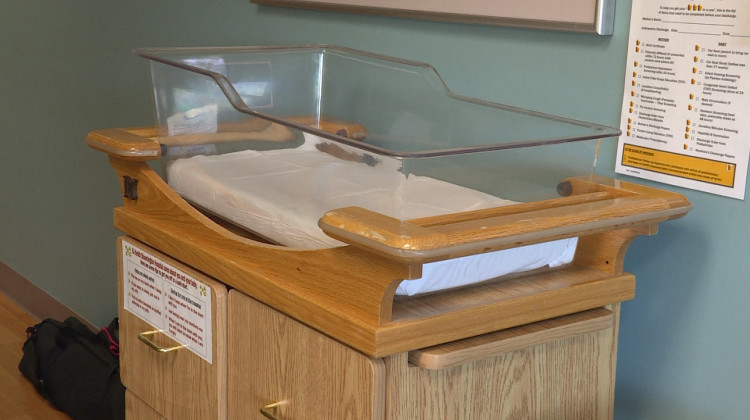Health officials have new guidelines to help prevent the spread of the new coronavirus and protect those most at risk – including people over 60 and those with underlying health conditions. But doctors say there’s still a lot we don’t know about the risks to women who are pregnant.
Dr. Chemen Neal is an OB-GYN with IU Health. She says doctors are basing recommendations off of viruses that are similar – like SARS, MERS or the flu.
"In those infections, pregnant women have increased hospitalization rates and are more sick than others, so right now we are calling pregnant women an-at risk group of people much like we are calling the elderly,” Neal says.
READ MORE: What Do You Need To Know About Coronavirus? We’ve Got Answers.
Neal says doctors are canceling or doing virtual check-ups for many non-urgent gynecology appointments to limit the number of people in a doctor’s office and protect women who are pregnant. She urges pregnant women to keep in touch with their doctor and not assume their appointments are canceled or postponed.
Neal encourages pregnant women to practice social distancing as much as they can to limit the risk of exposure and says only essential caregivers should be in contact with newborns.
She also says women who have just given birth are still considered high risk because they are prone to infection up to eight weeks.
Contact Darian at dbenson@wfyi.org or follow her on Twitter at @helloimdarian.
This is a rapidly evolving story, and we are working hard to bring you the most up-to-date information. However, we recommend checking the websites of the Centers for Disease Control and Prevention or the Indiana State Department of Health for the most recent numbers of COVID-19 cases.
 DONATE
DONATE








 Support WFYI. We can't do it without you.
Support WFYI. We can't do it without you.